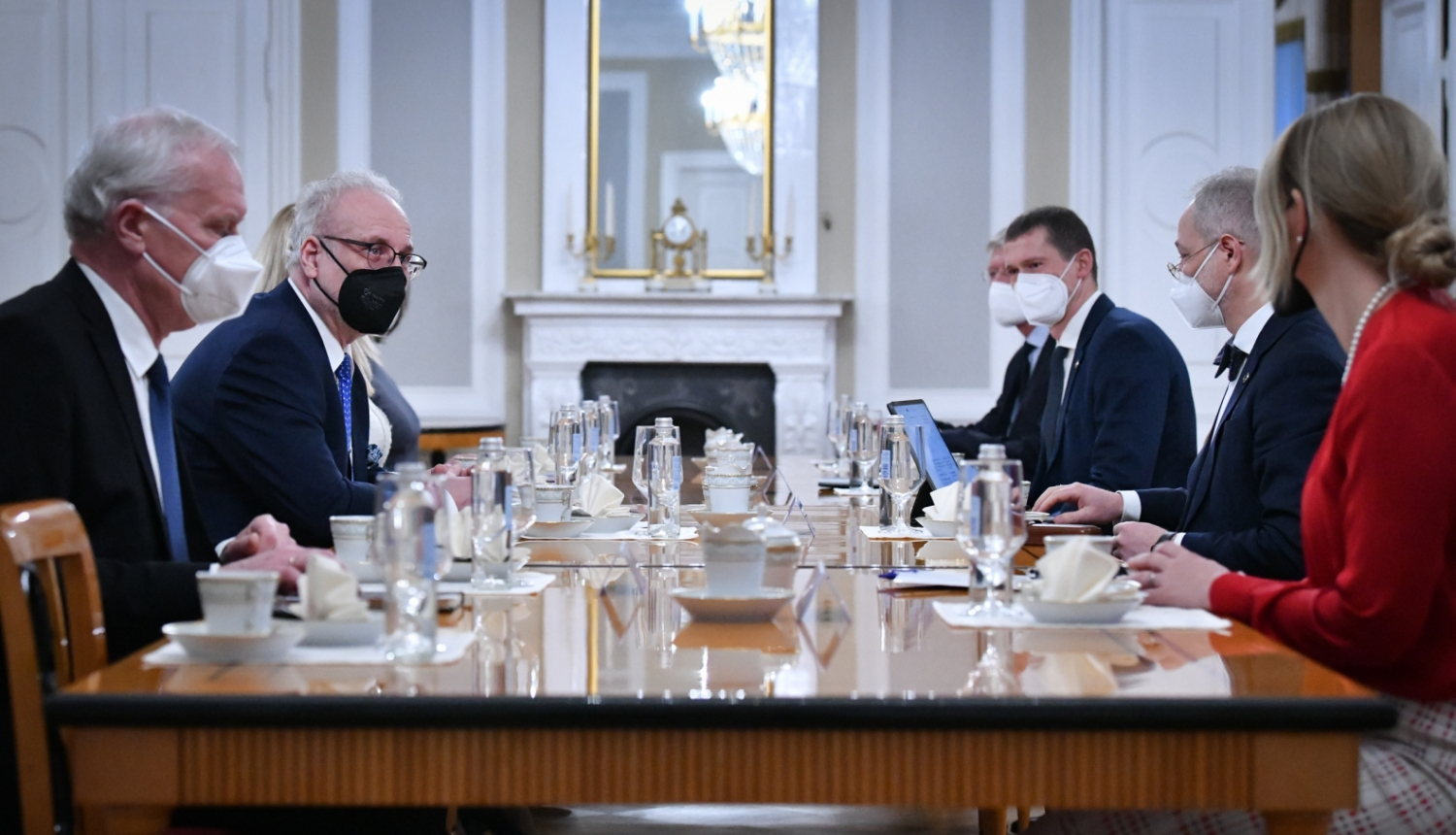On 17 January, President of Latvia Egils Levits welcomed Justice Minister Jānis Bordāns, Chair of the Saeima Legal Affairs Committee Juris Jurašs, Chair of the Judicial Policy Subcommittee of the Saeima Legal Affairs Committee Inese Lībiņa-Egnere and Chair of Criminal Law Policy Subcommittee of the Saeima Legal Affairs Committee Andrejs Judins to the Riga Castle for a discussion on results of 2021 and judicial priorities of 2022.
President of Latvia raised several important judicial policy and system development priorities for 2022. Egils Levits underlined the significance of Judicial Council in bringing all judicial policy stakeholders, judicial system branches and independent legal professionals working in the judicial system to the table to discuss future of the sector. He also commended Judicial Council for building good rapport with executive and legislative branches of government. President Levits said he is pleased to see how well Ministry of Justice and Saeima Legal Affairs Committee had coped with obstacles in the implementation of certain laws and quickly adopted changes eliminating them. Good law-making requires legislature to monitor the application of laws and make adjustments that prevent misapplication of laws or underperformance by enforcement authorities.
President of Latvia enquired about activities and deadlines for addressing weaknesses and applying improvements identified in last year’s judicial audit conducted by the State Audit Office and Organisation for Economic Cooperation and Development (OECD). According to Egils Levits, it is important to pay particular focus to improvements like better coordination of investigative activities between investigators and prosecutors and better indictments.
President of Latvia told his government colleagues about changes in the Law on Financing of Political Organisations (Parties) he is planning to propose to the parliament, Saeima, this week. He will call for cuts in public funding to parties whose parliamentary groups have dissolved and who are failing to deliver their promises to voters. President Levits specifically stressed the input of party funding experts who had suggested these changes to avoid future situations when ‘a party elected to the parliament dissolves before the end of term and is no longer able to achieve the political goals supported by its constituency, and thus creates a rare precedent in modern-day Europe’.
Judicial system leaders gave an overview of 2021 results of government and parliament efforts to strengthen the judicial system. These achievements included progress on creating more reliable business environment, especially more affordable land register fees, launching of the Economic Crimes Court, and opening of State Land Service data bases for public access. President of Latvia mentioned the positive feedback from the Foreign Investors Council in Latvia board members on the establishment of specialised financial crimes court, especially its ability to adjudicate cases in a speedy and efficient manner. Other important legislative changes had positive effect on framework regulating conduct of lawyers, notaries and bailiffs. A special law has been introduced to lift the small debt obligations from natural persons, and thus help vulnerable social groups.
Other projects that will be continued or started this year include construction of Liepāja Prison, creation of Judicial Academy, building of Economic Crimes Court capacity, more efficient enforcement of Constitutional Court rulings. Agenda of the Saeima Legal Affairs Committee and its subcommittees will focus on media personal harassment prevention framework, countering of disinformation and fake news, money laundering and other challenges.




